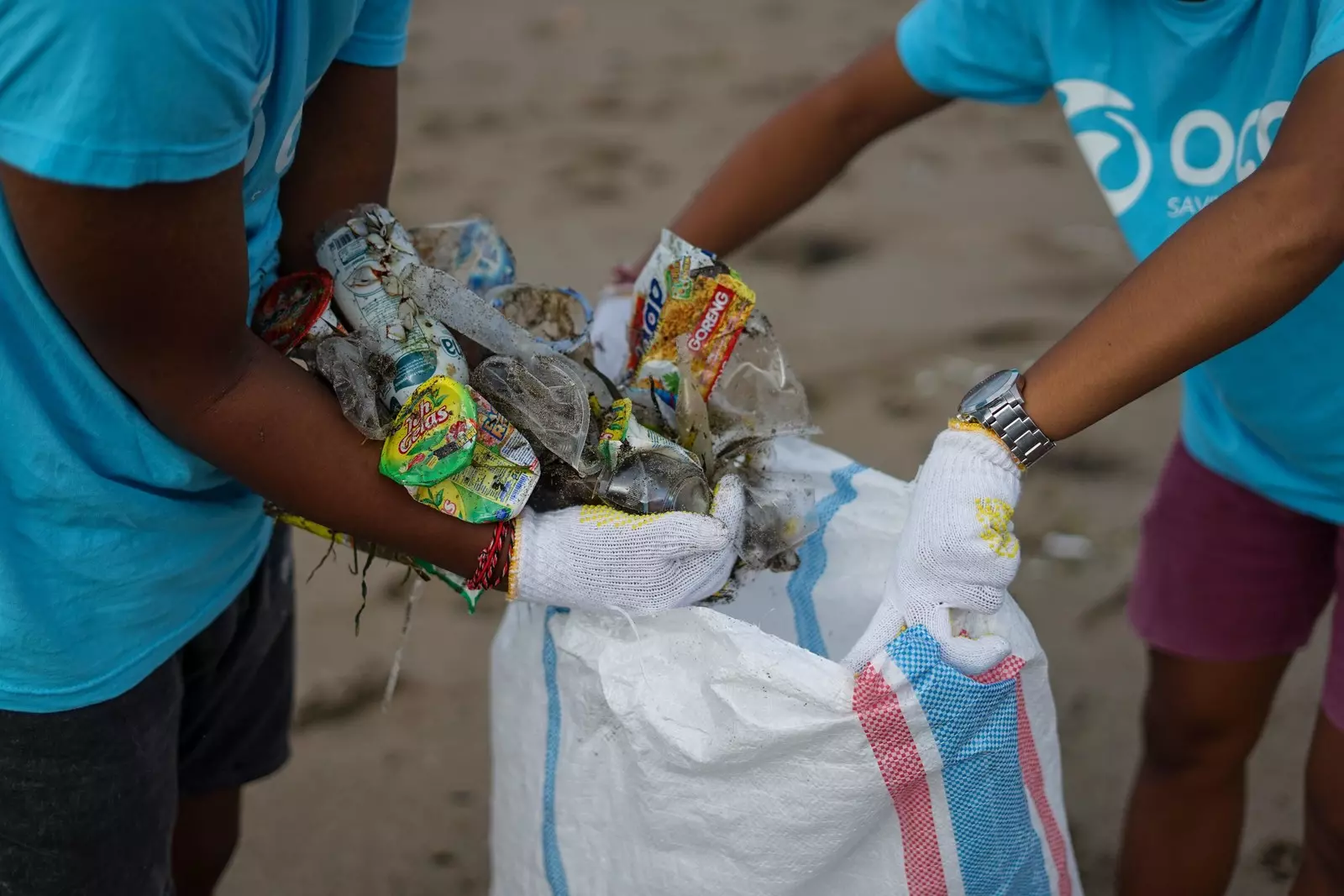The race to recycle is gaining momentum in Ghana.
Throughout the West African country, informal workers known as waste pickers clean up communities and natural areas. Their work is vital, the country has big plans to modernize the industry and improve conditions of workers. The World Economic Forum’s Global Plastic Action Partnership (GPAP) and SAP is creating a cohesive group of more than 2,000 waste pickers and using technology to measure the quantities and types of plastic that they collect. This data is then analysed alongside plastic prices that local and international buyers use in purchasing throughout the value chain.
By bringing transparency to the value chain, the project will benefit all stakeholders. Socially responsible companies will pay a premium for social plastics, which will benefit the end consumer and protect communities and the environment. Waste pickers themselves will also benefit by earning fairer wages. Policy-makers and public authorities will also use this data to decide where to build recycling plants.
What’s the challenge?
A total of 8 million tonnes of plastic waste leaks into the ocean each year. By 2050 there will be more plastic than fish in the ocean if we do not take urgent, collective action.
Ghana generates approximately 840,000 tonnes of plastic waste per year and approximately 9.5% of that is collected for recycling.
The system of waste pickers operates “below the radar” without formalized standards and processes. This puts stakeholders throughout the value chain at risk and also limits the way in which larger institutions can engage.
Our approach.
The Global Plastic Action Partnership (GPAP), works with governments, businesses, and civil society groups to translate commitments into meaningful action at global and national levels. Public-private partnerships to advance local efforts to fight plastic pollution are now active in Ecuador, Ghana, Indonesia, Maharashtra (India), Nigeria, Pakistan, and Vietnam.
In October 2019, the Government of Ghana officially became the first African partner of GPAP. During the launch, President Nana Akufo-Addo pledged to achieve zero plastic leakage into Ghana’s ocean and waterways, saying: “Ghana, after this process, will make best efforts to be a model for other countries in the region and on the continent on issues related to plastic management.”
The Forum played an instrumental role in bringing SAP and the Ghana National Plastic Action Partnership together. This relationship led to further connections throughout the plastics chain, including local waste picker organizations in Ghana; micro-, small- and medium-sized enterprises; multinational companies and local authorities. Together, this group is co-designing a mobile software package that provides waste pickers with the average prices for different materials. By putting up-to-date information in the hands of people collecting discarded plastic, the project is providing additional incentives for waste pickers to source materials which are most valuable for potential buyers and recyclers.
GPAP is also supporting the mobilization of US$77 million towards the establishment of a Circular Economy Framework in Ghana, thanks to collaboration with the Global Environment Facility, United Nations Industrial Development Organization (UNIDO) and the Government of Ghana.
Reference: World Economic Forum PLASTICS AND THE ENVIRONMENT

